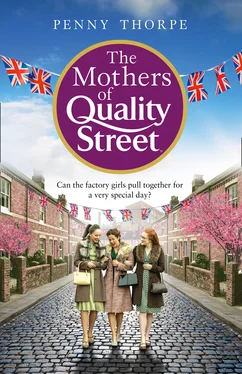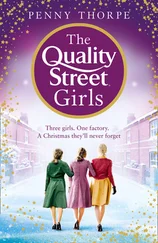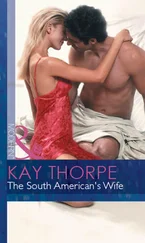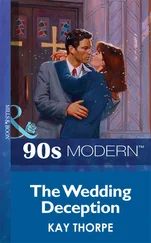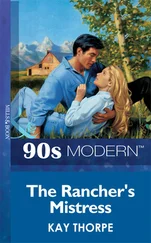‘You know what my mother said it was like?’ Emily Everard pulled her overalls tighter as she stuck her chin out with dignity. ‘She said it was like witchcraft, turning sugar powder into toffee gold.’
‘She’s right, though,’ Doreen said. ‘It’s like being able to do magic.’
‘I hope to God they don’t send us in the first round.’ Mrs Grimshaw kept her eyes fixed on the line that she didn’t need to see with her eyes to work quickly. ‘I just want one more day.’
Laurence Johns was nervous. He had been a Head of Department at Mackintosh’s for some time and meetings like this one in the Mackintosh’s boardroom were a common occurrence for him, but his department was International Affairs and he knew that he had been interfering in domestic matters which were not within his jurisdiction. This meeting was not a routine one, and he baulked at the thought that he was about to be forced to admit to his colleagues that he had made a rash decision which was putting their employees into immediate danger.
Departmental managers filed into the oak-panelled boardroom, some with their private secretaries, some with junior managers who were eager to take notes and prove themselves to the very people who might advance their careers. When the director was quite sure that everyone was present, he thanked them for attending at short notice and proceeded to business.
‘We have run,’ said Mr Hitchens, making a careful steeple of his fingers as he rested his elbows on the shining surface of the mahogany board table, ‘into some difficulties which we need to address.’
Amy Wilkes looked over her delicately rimmed spectacles at him and asked, ‘What kind of difficulties?’
The director gestured to Laurence to answer, which threw Laurence into renewed panic before he said, ‘Difficulties of supply.’
There was a strained silence as the senior Mackintosh’s managers looked around at each other’s faces to see who looked the most like they already knew what was happening. There were a lot of puzzled expressions and that prompted more muttered concern.
Laurence continued, ‘We have to cut supply from our main Irish factory.’
A young man in an over-starched collar who was taking notes for the factory’s Chief Accountant, piped up, ‘But what does that have to do with us? That’s the Irish factory manager’s problem, not ours.’
‘It is our problem; they were making almost a third of our Quality Street.’ Mr Hitchens’ words silenced the room.
Major Fergusson looked very grave indeed and smoothed down his moustache with thumb and forefinger, before saying, not unkindly, ‘I’m sure it can’t have escaped your notice that Great Britain is in the midst of a trade war with the Irish Free state and has been for nearly five years. It has been mentioned in the newspapers. After the Easter Rising in 1916 and the Great War, there was so much anti-English feeling in Ireland that any English produce, including Mackintosh’s toffee, would be seized by the general public, taken out into the street, and burned with the aid of paraffin. How could they possibly have made our Quality Street without drawing attention to themselves?’
Laurence Johns explained. ‘Mr Sinclair, a Mackintosh cousin from America, is managing the exports of the toffees made at the Irish factory and masking the fact that the factory is under the ownership of English proprietors. Mr Sinclair has been very good at maintaining supply without revealing where the produce is going. The reason we asked you all to this extraordinary meeting is because we have been sent photographs this morning by the Irish factory manager by special courier.’
Laurence took the file of photographs from the secretary sitting beside him and tossed them carelessly across the table. The photographs had been enlarged to give as much detail as possible and showed the exterior of Mackintosh’s principle factory in Ireland. On the walls, painted in huge letters, were the words ‘Burn everything English except their coal’.
Amy Wilkes was a shrewd bird and could see the direction their problem was taking. ‘So local people know the factory is secretly owned by Englishmen and the American manager is just a front?’
Johns took a sip of water and wished that he could have explained this in a written memo without having to face his colleagues. ‘After the accident here at the plant we had to take desperate measures to ensure supply which is why we chose to have a Quality Street line set up in Ireland. We did the same in Ireland as in Halifax: we lifted the marriage bar and brought back skilled married women to work on a temporary line. They’ve made enormous sacrifices to save Quality Street – and we’ve put them in danger.’
The starched collar was not following as quickly as Amy Wilkes. ‘Why would this risk the safety of the workers in Dublin? What’s so dangerous about toffee making?’
‘Because if Mackintosh’s toffees can be seized from shops and burned in protest, what’s to stop a raid on the factory itself?’ Major Fergusson waved the picture of the Inchicore factory. ‘Look at the photograph, man. It’s a direct threat!’
Johns nodded. ‘We had to stop production yesterday. Word got out that the product they were making was by appointment to the royal household and we couldn’t allow the risk any longer, so we need additional girls to work at toffee making here in Halifax now that the Inchicore factory has had to return to normal production levels.’
Amy Wilkes narrowed her eyes. ‘Just how many extra girls do you need us to find?’
‘Five hundred and ninety.’
Amy could not respond at first – the number was too great to comprehend. If he’d said twenty she’d have told him he was expecting too much, but this many was impossible. They were already employing married women who they’d taken out of retirement as an emergency measure, and although there were plenty of unemployed labouring men in Jarrow and Clydeside, they weren’t trained confectioners, and they weren’t moving to Halifax in the morning to work for something as paltry as a woman’s wage. Amy Wilkes shook her head. ‘That’s impossible, I’m afraid. We’ll need time to recruit and train them up and even then we’ve taken on every girl we can get in Halifax.’
‘What about the married women? I heard that they were being let go—’
‘I don’t know where you heard that.’
‘News travels fast in the factory. You’re making an announcement to them after the late shift tonight.’
‘ That’s not what we’re announcing. We have a bigger problem than you thought.’
‘I don’t mind that you got blotto with m’ dad, that’s not the problem – it’s what you said when you were blotto.’ Reenie was brushing down her horse in the factory stable and looking over his withers at Peter McKenzie who was sitting on a hay bale in a shady corner.
Peter was looking uncharacteristically sorry for himself and somewhat confused. ‘But I’d never say anything bad to you—’
‘You hardly said two words to me at all, but you said an awful lot to m’ dad.’
‘I don’t really remember what I said to your dad. I know I only said good things about you, Reenie, I definitely sang your praises.’
‘And?’ Reenie folded her arms and raised her eyebrows to indicate that there was another matter which he really ought to remember.
‘And I think I drank your health?’ Peter looked worried; he rarely drank, and although he vaguely remembered spending a happy evening with Reenie’s father, he was worried about what kind of a fool he might have made of himself, if only because he hoped he hadn’t brought embarrassment to Reenie.
Читать дальше
